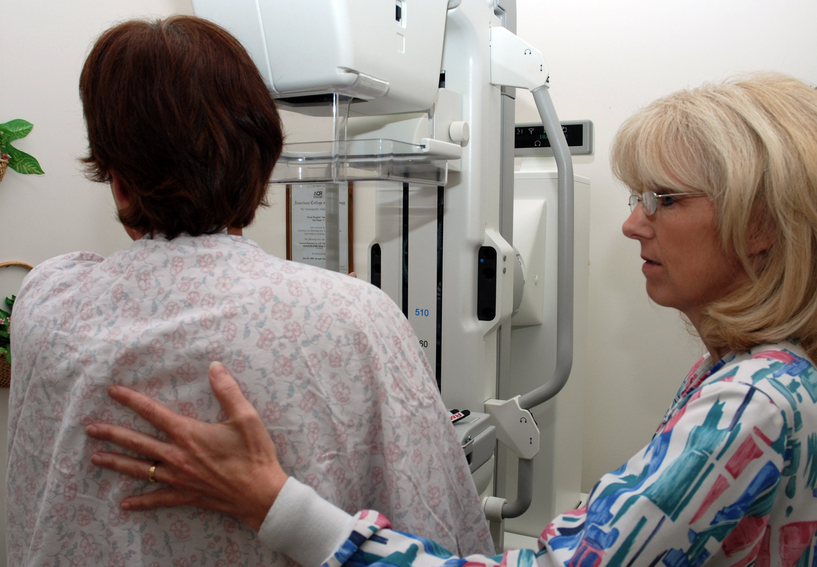Two months ago, a posting appeared in this column titled:
Are Obamacare Wellness Programs Soon to be Outlawed? Truthfully, that headline was picked for its sky-is-falling value, treating one EEOC lawsuit against one wacky wellness program as a risk for wellness programs everywhere.
As luck would have it, the sky just fell yesterday --
right on the head of Honeywell -- and the EEOC is indicating more lawsuits are to come.
The scary part: Unlike the wacky wellness program described in the column two months ago, Honeywell was in compliance with the Affordable Care Act. Compliance with the ACA doesn’t seem to get you a free pass on the EEOC’s own “business necessity” requirement. Essentially, the Honeywell lawsuit means no company doing invasive biometric screenings and mandating doctor visits or measuring health outcomes is immune to prosecution, even if it is in compliance with ACA.
The even scarier part: The EEOC is correct that, as this column has noted for almost two years now, wellness programs mandating overscreening and annual checkups have no business necessity. In fact, these “employer playing doctor” programs can harm employees, because:
- A workplace screen can find heart attacks… but at the cost of a million dollars apiece, when emotionally draining false positives and potentially hazardous overtreatment are taken into account;
- The Journal of the American Medical Association recommends against mandatory checkups;
- An embargoed, peer-reviewed article that will be published soon in a major journal concludes that the costs and unintended health hazards of weight control programs generally overwhelm the benefits.
Companies could still claim business necessity if, indeed, these programs save money despite the harm to employees. (OSHA might raise issues, but those are hypothetical whereas EEOC is an elephant in the room.) And a few of you might ask: “Didn’t Seth Serxner of Optum and Ron Goetzel of Truven just
write a journal article and show
a webinar saying: ‘The overwhelming majority of published studies show positive results’?”
Unfortunately, those “positive results” -- as is well-known to the presenters, who, after all, have access to the Internet -- fail any sniff test.
These two true believers continue to cite Professor Katherine Baicker even though she has stepped back three times from her old (2009) conclusion that wellness provided a significant return on investment (ROI), including
a “no comment” to ITL’s own Paul Carroll. More recently, she has, with great justification, blamed overzealous readers for
selectively interpreting her findings. Goetzel also continues to cite the state of Nebraska, which his committee gave an award to as a
“best practice” despite the revelations that the state’s vendor lied about saving the lives of cancer victims and that the vendor also paid off his award committee with a sponsorship. Likewise, Goetzel's misinterpretation of a RAND study has drawn a rebuke from the author of the study, in a coming letter to the editor. [Editor's Note: ITL emailed a link to this article to the press offices at both Truven and Optum on Oct. 30 offering them a chance to respond to the author's allegations. Both were told that they could either comment at length in this article or could write separate articles that would lay out their position and that ITL would publish. Neither company has yet responded.]
Clearly, the EEOC is on to something about a lack of business necessity, when even the alleged best-and-brightest wellness defenders are forced to rely on misstatements and half-truths. Not to mention selective omissions -- the presentation’s extensive section on “critics” had no mention of me, despite a recent
cover story citing me as the field’s leading critic, because both these two presenters know my math is irrefutable. These industry defenders also have spotty memories, as when they claim that it is valid to compare the performance of active, willing participants against a control group of unmotivated non-participants and dropouts -- forgetting that they gave out a Koop Award to one of their sponsors who showed
exactly the reverse.
Inoculating Your Programs
A problem with the EEOC does not have to happen to you or your clients (if you are a broker). Taking three steps -- the first of which is free and the second of which costs only in the four figures -- essentially guarantees that you will not end up on the hot seat with Honeywell.
First, sign and adhere to the Workplace Wellness Code of Conduct. This will allow you and any clients to focus your own efforts on avoiding employee harm and creating a framework for business necessity. This document is provided
gratis for ITL readers, from the author.
Second, employers who sign this and get at least one vendor/carrier to sign and implement its counterpart, the Workplace Wellness Vendor Code of Conduct, can have their own outcomes validated by the GE-Intel
Validation Institute (itself the subject of a forthcoming ITL posting), to create an audit trail that, in fact, outcomes are being measured.
Third, I personally -- along with colleagues -- will do an in-depth walkthrough to see if, indeed, your wellness program complies with U.S. Preventive Services Task Force guidelines. If not, we will provide a list of next steps to get into compliance.
The inoculation? A six-figure guarantee that you (or your client, if you're a broker) will not be the subject of a successful EEOC lawsuit. Besides providing some protection on its own, this level of financial commitment may create a self-fulfilling prophecy. Your actions will be a pretty convincing piece of evidence that business necessity and employee health are the goals, as measured by an objective and qualified third party.
Yes, I know it’s not always about me; you can protect yourself in other ways. My ex was quite clear on the subject of whether it's always about me.
However, in this case, my ex would seem to be wrong. It appears that every screening vendor, every alleged wellness expert and most of those in large benefits consulting firms have done just the opposite of what I'm suggesting: They have proposed massive wellness programs with hefty financial incentives or penalties that get companies into fine messes like Honeywell’s. But, in case I'm wrong, I welcome names, websites and contact information of other consultants taking the same approach that I am. Please note them in the comments boxes below. All will be published.








